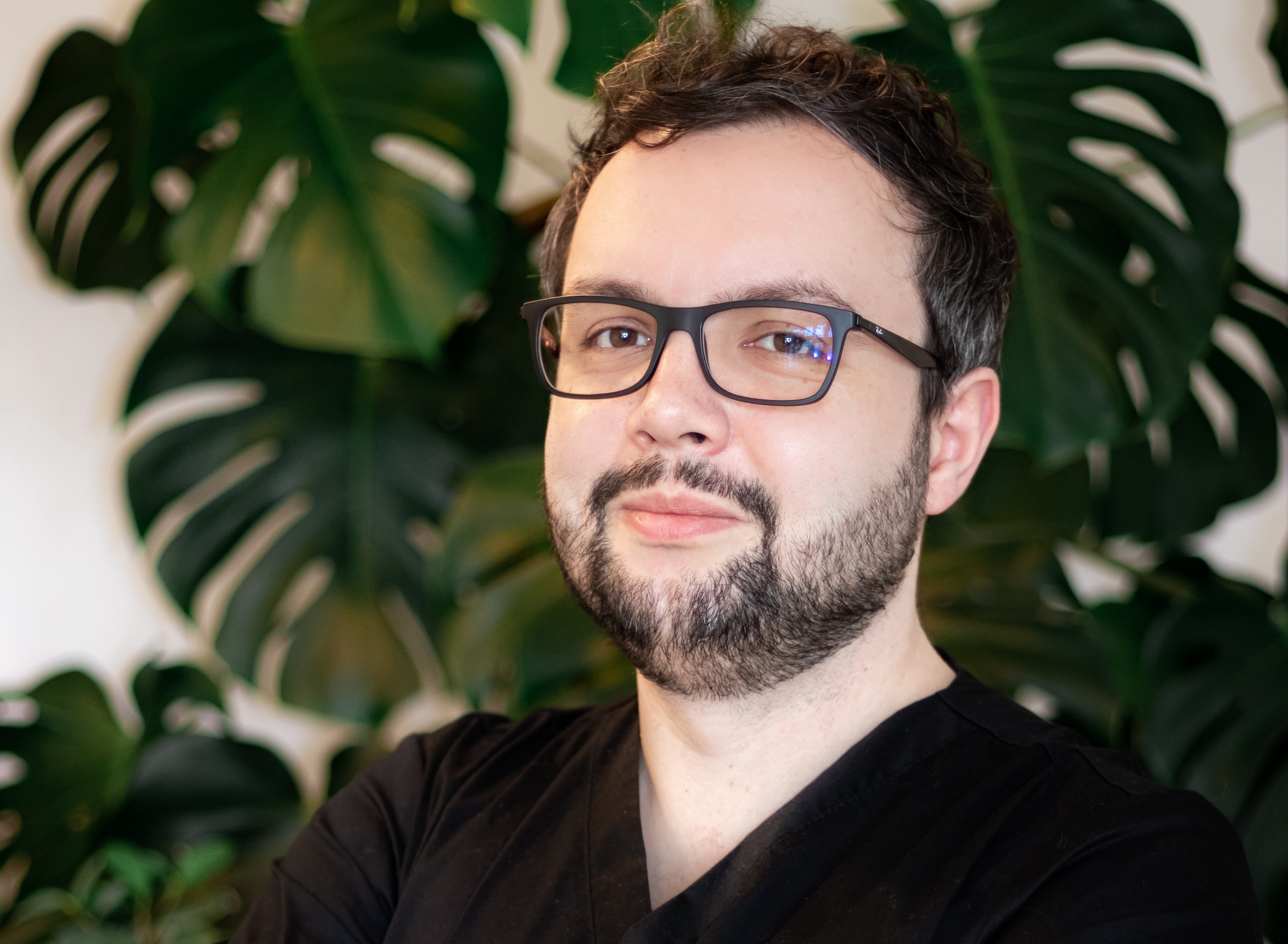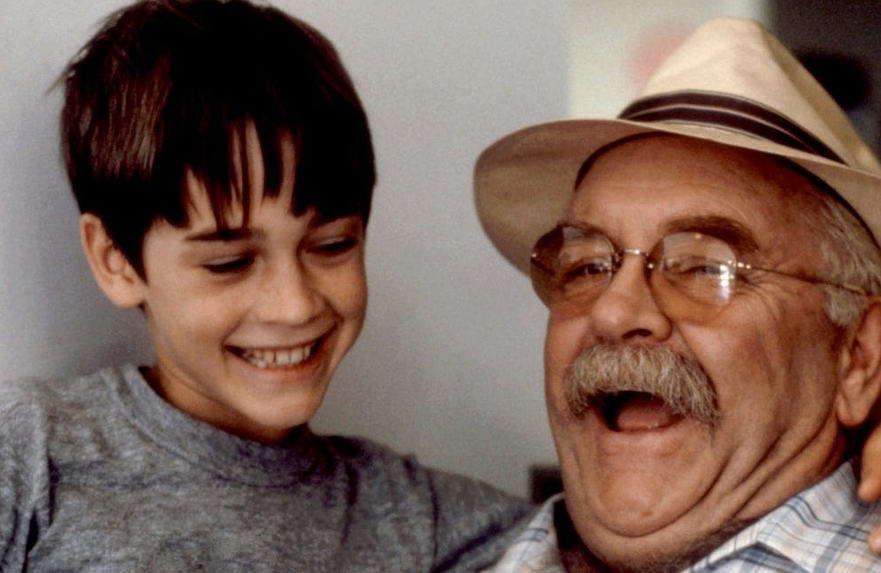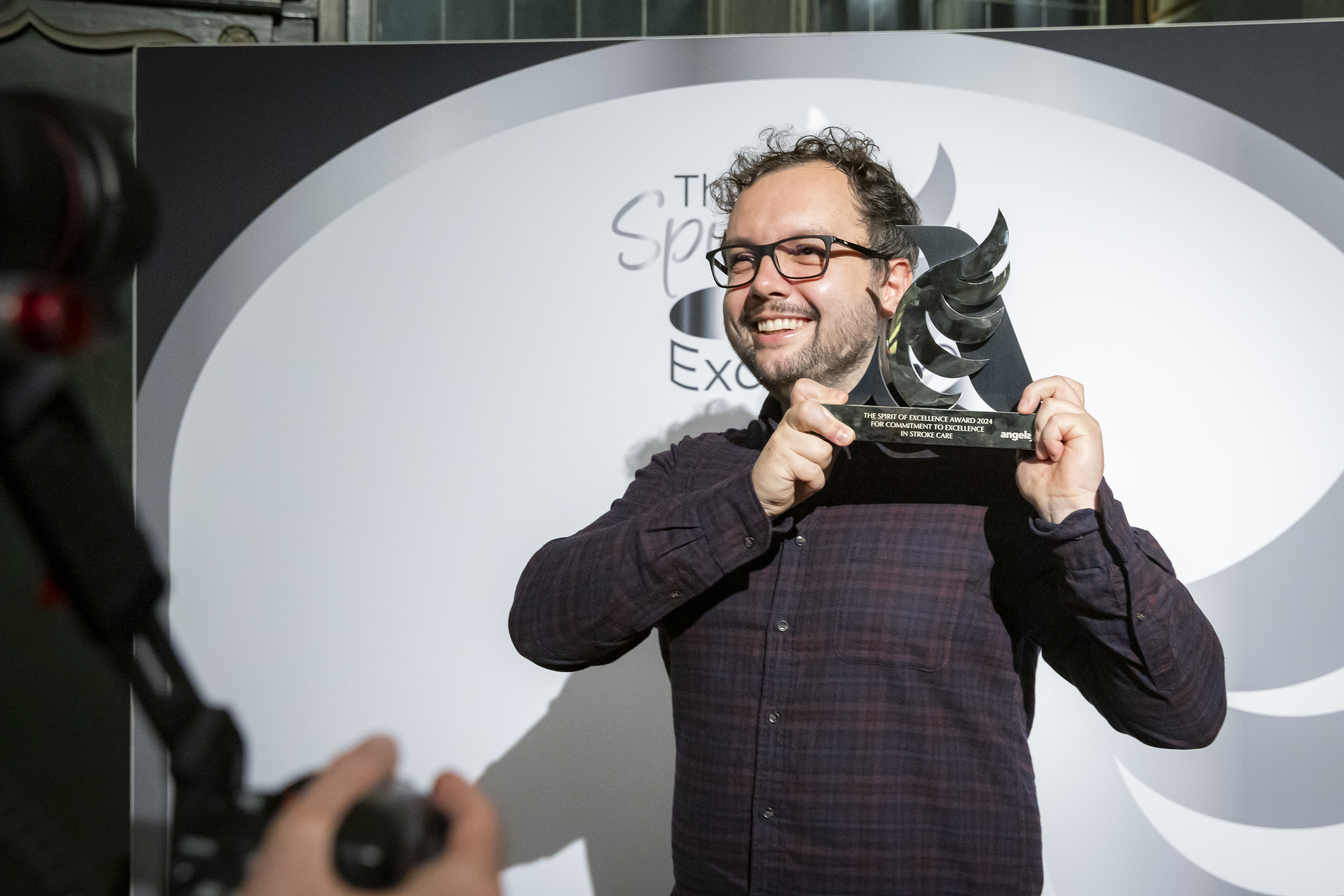
Nel marzo del 2024, Tomasz A. ha consultato un neurologo presso l'Ospedale universitario di Kraków e, successivamente, ha lasciato una bella revisione: "Il medico era molto coinvolto e interessato al mio problema", scrisse. "Vorrei che io e gli altri medici di tutto il mondo avessi questo approccio ai pazienti".
Sandra Sz. ha notato dopo una visita con lo stesso medico che si è avvicinato ai suoi pazienti con "cuore ottimo e comprensione".
Anna S. ha menzionato la sua "conoscenza, intelligenza, empatia [e] calma" e ha concluso che sua madre era "nelle migliori mani".
Katarzyna ha descritto il medico come uno "specialista di megamega e megaumano".
Agnes ha scritto che sembrava anche che conoscesse le sue paure immaginarie e che le parlasse.
Peter H. si è rivolto a figure del linguaggio: "Saluta come nessun altro, esamina come l'oro, un medico che si può cercare con una candela".
Un altro paziente ha semplicemente concluso che il dott. Pawe erogare il farmaco era "un uomo che vale la pena consigliare".
Il quadro che emerge da queste descrizioni è di una persona che è stata esaurientemente educata dalla vita, una persona che forse ha una lunga esperienza dotata di ricche riserve di conoscenza ed empatia. Ma il grande cuore e la comprensione che ha portato tale conforto al paziente neurologia Sandra Sz. appartiene inaspettatamente a un 35enne il cui affascinante cherubico lo fa apparire ancora più giovane e che sembra costantemente sopprimere un sorriso.
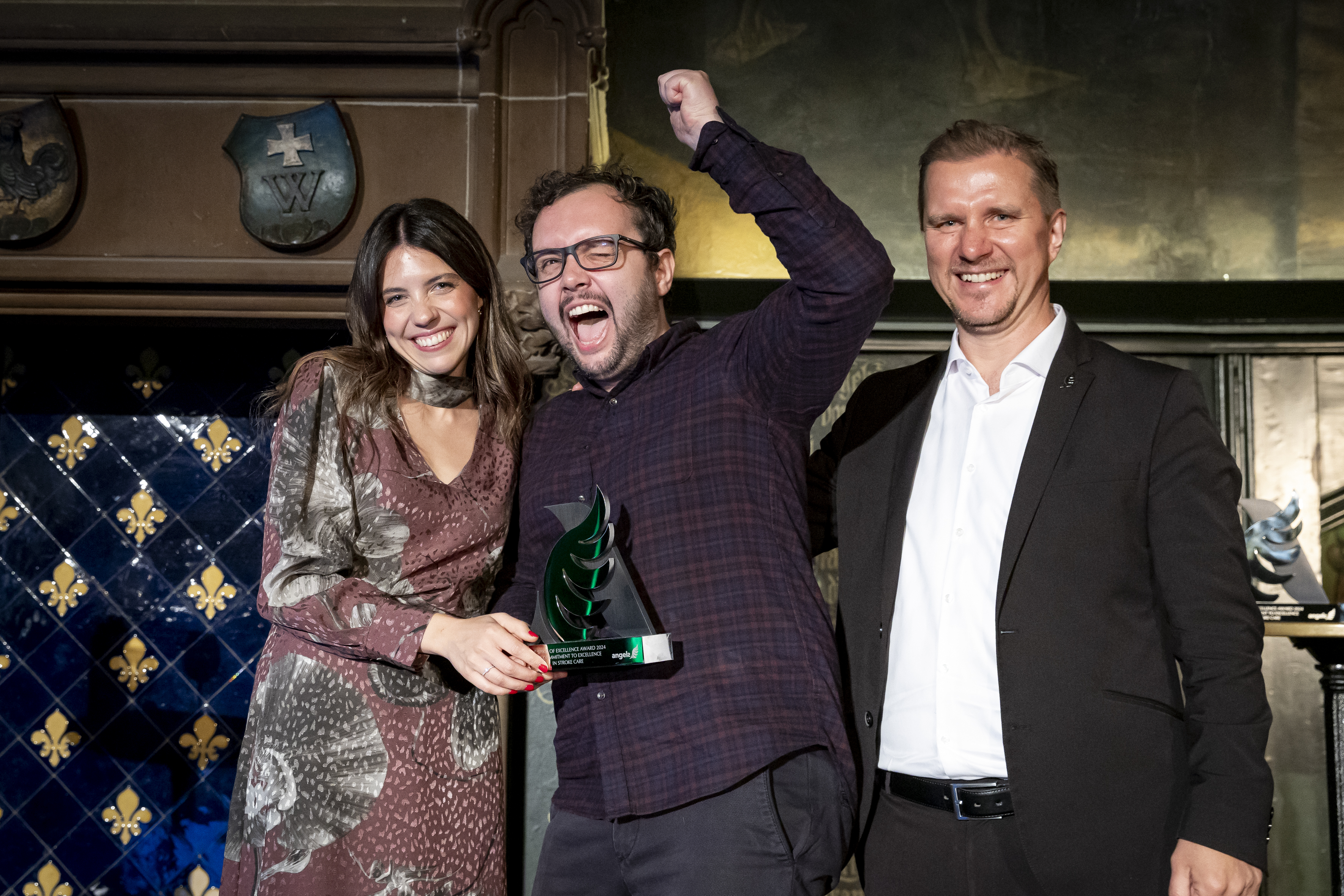
Non c'è da sorpreso meno che la scuola di empatia dalla quale il Dott. Wrona si è laureato non sia l'Università di Scienze Mediche di Pozna di cui ha conseguito la borsa di studio per il miglior studente. Né la Warsaw Management University, dove ha completato un MBA in sperimentazioni cliniche lo scorso anno, né il Jagiellonian University Medical College, dove è fonte di ispirazione per i futuri medici con una passione per l’ictus.
No, il luogo in cui ha imparato a esercitarsi ad ascoltare, prendersi cura e comprendere era la sala. È stato come giovane attore nella sua città natale di Krosno che (per prendere in prestito le parole della casa farmaceutica statunitense Bill English) costruì i muscoli della compassione. A 18 anni e i suoi amici teatrali di Krosno fondarono la Nocne Teatralia Strachy, un festival di arti "alternativa" di cui ora è direttore. Ma anche se il pensiero di una carriera nelle arti ha attraversato la sua mente, Pawe curve aveva già deciso di voler essere un medico e perché: "per aiutare le persone nel modo migliore che posso".
Tuttavia, nell'ultimo mese del suo tirocinio, il giovanissimo dott. Wrona ha preso un'altra decisione. Ha disegnato tre colonne, le ha etichettate come Medicina Generale, Psichiatria e neurologia ed ha elencato i pro e i contro di ciascuna. neurologia vinse e gli amici diKraków da cui chiese consiglio lo confermarono.
Per quanto rigoroso sia il suo processo decisionale, non nega che l'intuito possa essere stato sul lavoro. "Forse il cuore sapeva", dice Paweuo. Quindi, con cuore e testa che lo puntano nella stessa direzione, l'attore di Krosno ha intrapreso il compito di diventareun uomo che vale la pena consigliare.
Nel mese di maggio del 2024, il Dott. Paweł Wrona si è recato a Basilea, dove, con la sua considerevole sorpresa, è diventato il più giovane destinatario di un premio ESO Premio Spirito di eccellenza per servizi eccezionali alla la cura dell'ictus. È un onore raro apprezzato una volta all’anno durante l’ESOC su cinque individui europei che hanno lasciato un segno indelebile nella la cura dell'ictus nei loro Paesi. In piedi nell’ombra delle professore Anna Członkowska e Adam Kobayashi, in qualità di terzo medico polacco, per vincere il riconoscimenti, Paweχ è allegramente consapevole che gli è appena stata affidata una responsabilità enorme.
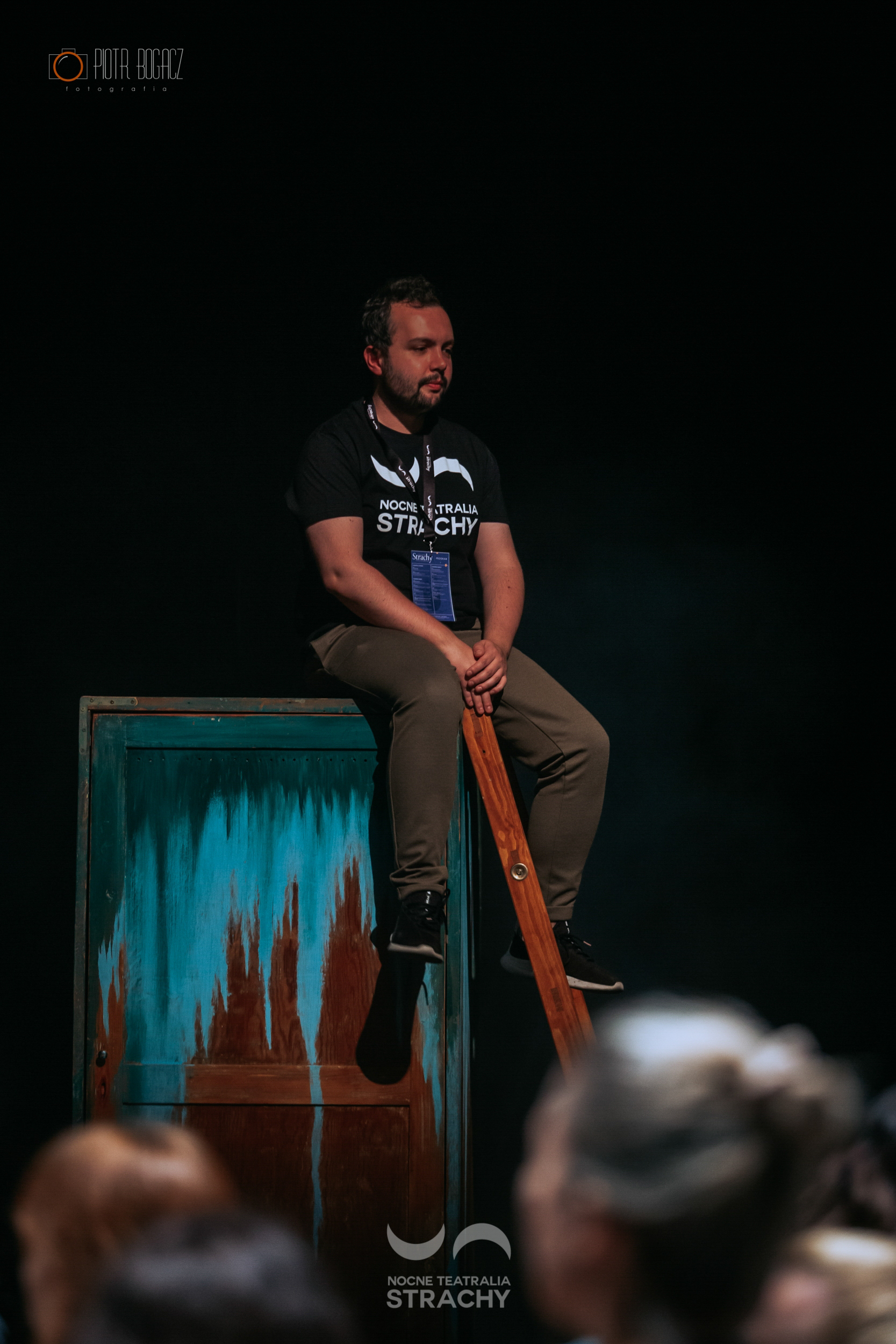
"È un momento importante", dice due giorni dopo l'evento. Deve usare la sua voce da palcoscenico perché la sala espositivo all'ESOC 2024 è rumorosamente smantellata mentre la conferenza si avvicina al termine. "Mi porterà a fare di più. Ho molte nuove idee. Aiuterò il più possibile e non mi fermo. C'è sempre qualcosa da fare, qualcosa da migliorare."
Ci sono, ad esempio, più centri per l’ictus nella sua regione per coinvolgere nel monitoraggio della qualità, più medici e infermieri da formare, più laboratori Servizi d'emergenza da affrontare, centri più piccoli e rurali da supportare, la campagna degli eroi FAST da sostenere e molto da imparare sul comportamento delle persone nell’ictus acuto in un ambizioso progetto di consapevolezza pubblica per ridurre i ritardi tra l’inizio dell’ictus e l’arrivo in ospedale.
Ovviamente ci sono anche territori da convertire in regioni Angels, più premi Angels ESO per aggiungere ai sette diamanti che il suo ospedale ha vinto dal 2021, e più attenzione alla pratica e gentilezza da dispensare ai pazienti che vengono da lui con le loro paure, sia reali che immaginarie.
Ogni paziente porta una anamnesi e ogni anamnesi è un puzzle, dice. L'obiettivo di migliorare la cura dell'ictus è avere "meno storie, meno spiegazioni ai pazienti su ciò che è accaduto e sul perché sono disabili per il resto della loro vita".
Uno di questi anamnesi è un giovane uomo che aveva subito una dissezione interna dell’arteria carotide, una rara causa di ictus. Aveva raggiunto il centro primario abbastanza rapidamente, ma è arrivato solo al centro completo centro ictus della Dott.ssa Wrona dopo un ritardo di sei ore. Il primo ospedale aveva sprecato tempo in attesa dei risultati di laboratorio, poi un neurologo aveva voluto "avere un look", e l'ambulanza aveva soffocato un'ora in più. All'arrivo pressol'Ospedale universitario di Kraków non c'era nulla da fare, ad eccezione della craniectomia per ridurre la pressione sul cervello.
Dopo due anni di riabilitazione, questo paziente, pur continuando a combattere lafasia, è stato infine in grado di camminare e lavorare, ma, afferma Pawe sovvenzioni, in una serie diversa di circostanze avrebbe potuto sopravvivere senza alcun deficit.
C'è un'altra anamnesi più vicina a casa. Quando sua nonna ha avuto un ictus, Paweł era ancora a scuola primaria. Poiché non era disponibile alcun trattamento acuto, ha trascorso gli ultimi anni della sua vita paralizzata e parlando con difficoltà. Ricorda sua madre, un insegnante a tempo pieno che fa crescere due figli, che si prende cura di lei ogni giorno. Ricorda che sua madre piange.
Queste storie, dice Pawe curve, non succede più.

Ci sono anche altre storie. Sono quelli raccontati in sala e al cinema che aiutano a "liberare la mente" e ogni autunno quando Nocne Teatralia Strachy si tiene a Krosno. Era ancora in una scuola di medicina quando ha realizzato che il festival potrebbe essere una piattaforma per impartire conoscenze mediche cruciali a una demograpica vulnerabile. Ora il programma ogni anno include un invito alle persone in età pensionabile a partecipare a workshop artistici e di artigianato che includono le lezioni sull’ictus da parte del Dott. Paweł Wrona. Come per il resto del festival, questi eventi sono gratuiti. "Perché non si dovrebbe avere bisogno di denaro per ricevere la cultura", ritiene il direttore del festival.
Anche se va senza dire che ha reso sua madre orgogliosa, questo non è qualcosa che Pawe erogarebbe per scontato. La sua speranza di rimanere orgogliosa è qualcosa che lo guida. Ricorda un’occasione in cui si è recata in ospedale per un esame del sangue e ha trascorso 30 minuti nella sua sala d’attesa in cui i pazienti le hanno detto che aveva sollevato un medico che può cercare con una candela, un uomo con grande cuore e comprensione.
"In seguito ha detto di essere orgogliosa di me. È stato il complimento più grande che potevo ottenere."
